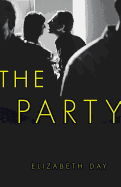
Sociopathy, class structure, devotion and betrayal play roles in the twisted buildup to the titular soiree of Elizabeth Day's The Party. Three weeks post-gathering, one attendee remains in critical care and Martin Gilmour sits in a police station undergoing questioning. Martin, an art critic from a tough background, admittedly "finds it difficult to be normal." The one thing that comes naturally is loyalty to childhood friend Ben Fitzmaurice, Martin's polar opposite and one of Britain's most connected men.
The night of Ben's 40th birthday/mansion-warming bash, Martin and his long-suffering wife, Lucy, argue about the lack of an invitation to stay at the Fitzmaurice estate. Although silently aggrieved, Martin defends his friend, as he has since they were in school together. Ben is his best mate, the Hutch to his Starsky, a man Martin dotes on to the extent that Ben's wife, Serena, dubs him "LS"--Ben's Little Shadow.
Day (Paradise City) spellbindingly spools out the evening's events through Martin's interrogation, interlaced with internal reflections of his history with Ben and caustic commentary on his challenges with others and society as a whole. As the conflict within the couples and among the foursome builds to a head, excerpts from Lucy's diary clarify the evening's events while adding a new dimension of mystery regarding their provenance. When Ben requests they all meet for a private discussion, Martin's devotion to Ben, Ben's life aspirations, Serena's temper and Lucy's patience with the lot of them are pushed to the brink. The Party is a splendid, stunning slow burn. --Lauren O'Brien of Malcolm Avenue Review

